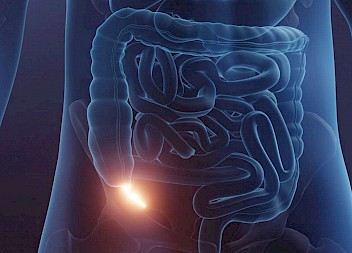A man in his 60s was awarded £35,000 in compensation after he suffered a burst appendix when doctors at an emergency department misdiagnosed his symptoms as a urinary tract infection (UTI).
The claimant, ‘C’, went to the emergency department in May 2015 with abdominal pain to his front right side, a swollen tummy, nausea and loss of appetite. He was in so much pain, his wife had to speak for him. She questioned the possibility of appendicitis, which a doctor told her was unlikely and refused her request for a CT scan.
Instead, C was diagnosed with a UTI and given a three-day dose of antibiotics, despite C not having any of the usual UTI symptoms such as discomfort when passing urine.
Two days later, C was taken back to the emergency department by ambulance with a burst appendix. He underwent open surgery to remove his appendix and was transferred to the hospital’s ICU (Intensive Care Unit). An IV drip and surgical drain bag were fitted to reduce the risk of infection.
However, a few days later, a scan showed C had a build-up of fluid around the surgery site. He was told the infection was coming from the drain bag but this was not drained or replaced for another two days. C’s wife had to keep asking for the drain bag to be replaced, and also for someone to check the staples to the wound.
The staples were removed 11 days after surgery but the bottom of the wound opened up and fluid began pouring out. The infection started to clear up after that.
C experienced six months of pain after the infection and suffered a period of fatigue, weakness and reduced mobility that left him housebound.
He was left with a large midline scar from the open surgery that would have been avoided had the appendicitis been taken seriously before the appendix burst; it could have been treated via keyhole surgery instead. C also developed incisional hernias that required further treatment.
Litigation
C instructed Medical Solicitors to begin a medical negligence claim in July 2015. His legal representative, Matthew Brown, helped C submit an official complaint to the Defendant Trust; their response made certain admissions about errors with C’s care.
Matthew issued a Letter of Claim and the response made limited admissions to causation, mainly in the two-day delay to surgery for appendicitis. The Defendant Trust made an initial offer of £30,000 which was increased to £35,000 after negotiations.






